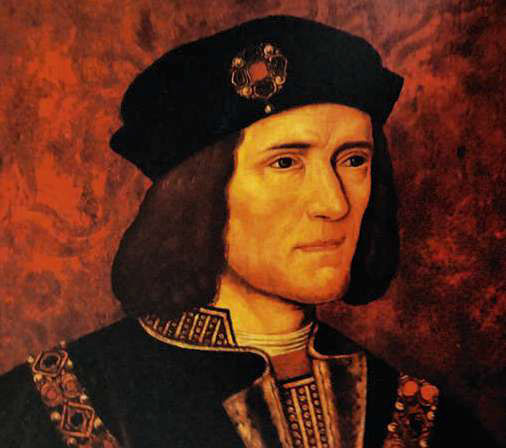Richard III had a clear advantage going into the battle of Bosworth Field on 22 August 1485. As king of England, he commanded an army two or three times the size of the ragtag Lancastrian force that sailed from France, he had brought more cannon, and he was a seasoned warrior. His enemy, a Lancastrian with a tenuous claim to the throne named Henry Tudor, had never seen battle. When Richard heard of Henry’s landing, he was overjoyed: he had a chance to crush this pretender once and for all.
IN CONTEXT

Richard III was much maligned after his death, though that may have a lot to do with Tudor portrayals of him
GETTY IMAGES X2, ALAMY X1
IN CONTEXT
Richard, fourth son of the Duke of York, was not destined to be king of England, even after his brother won the crown in the Wars of the Roses and became Edward IV. When Edward died in 1483, his son Edward V ascended the throne, but Richard, chosen as Lord Protector, supplanted his nephew only a few months later.
As Richard III, he faced opposition both from nobles whom he had replaced with his own supporters and from Yorkists, who named him a usurper and suspected murderer of his two nephews – the Princes in the Tower. A Lancastrian with a feeble royal claim, Henry Tudor, was declared king by the rebels and defeated Richard at the battle of Bosworth Field on 22 August 1485. Henry VII united the roses of York and Lancaster by marrying Elizabeth of York, Edward IV’s daughter, while Richard’s reputation was denigrated by Tudor propaganda, including in the popular works of William Shakespeare.
Richard, fourth son of the Duke of York, was not destined to be king of England, even after his brother won the crown in the Wars of the Roses and became Edward IV. When Edward died in 1483, his son Edward V ascended the throne, but Richard, chosen as Lord Protector, supplanted his nephew only a few months later.
As Richard III, he faced opposition both from nobles whom he had replaced with his own supporters and from Yorkists, who named him a usurper and suspected murderer of his two nephews – the Princes in the Tower. A Lancastrian with a feeble royal claim, Henry Tudor, was declared king by the rebels and defeated Richard at the battle of Bosworth Field on 22 August 1485. Henry VII united the roses of York and Lancaster by marrying Elizabeth of York, Edward IV’s daughter, while Richard’s reputation was denigrated by Tudor propaganda, including in the popular works of William Shakespeare.